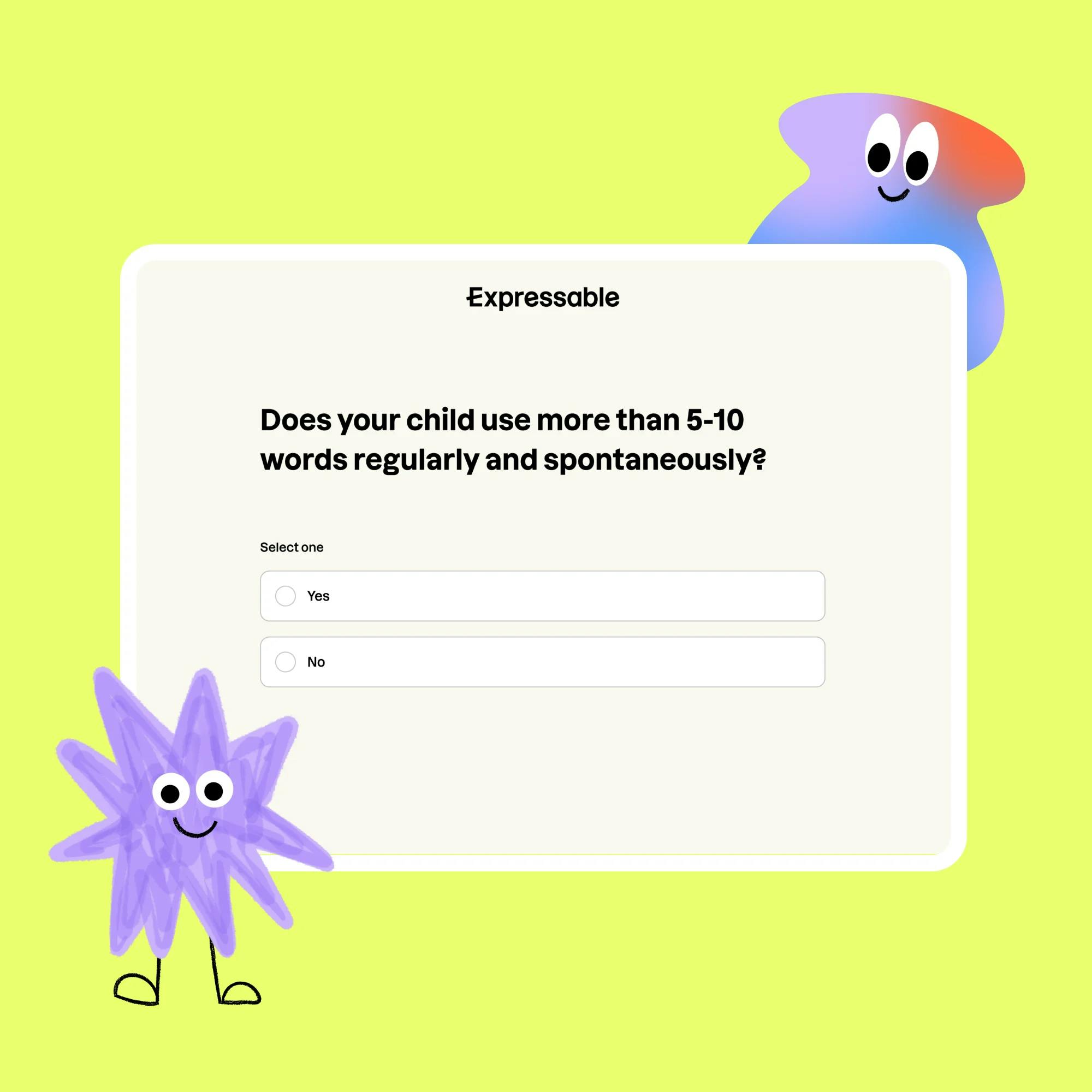
Communication Issues Can Affect Kids' Social and Emotional Well-being
 Leanne Sherred, M.S., CCC-SLP
Leanne Sherred, M.S., CCC-SLP
Communication is one of the most foundational skills that develop during early childhood. During this time, children begin to understand and process the world around them, as well as express their thoughts, ideas, and feelings.
When speech and language skills are delayed or underdeveloped, it can take a toll on a child's social and emotional well-being. Learn more about how communication problems can affect your child and what you can do to help.
Curious or concerned?
Our free screener is tailored by age and covers all areas of speech, language, and feeding. Find out if your child might need speech therapy.
 Screener for children
Screener for childrenCommunication issues can lead to social and behavioral problems
For young children, the inability to make themselves understood, or process their emotions, may lead to self-isolation, temper tantrums, or other behavioral issues.
Older children who have speech and language problems may also experience social and emotional challenges. Here are some examples:
Children who stutter can have poor confidence, be withdrawn, or limit their interaction with peers for fear of being teased.
Those with a developmental language disorder may know exactly what they want to say, but be unable to translate their thoughts into clear sentences, causing frustration.
Research has shown that children with speech disorders, or problems pronouncing words clearly, have a harder time making friends.


One hallmark study that spanned 29 years found that children with delays in their receptive language skills--the ability to understand what others are saying and process information--were at greater risk for social, emotional, and behavioral problems as adults. The researchers used standardized tests to measure the receptive language skills in approximately 7,000 children at age 5. They followed up with these same children at age 34 and found that they were more likely to experience mental health problems than those who did not experience language delays.
The researchers came to this conclusion: “The needs of children with language problems are complex and call for early and continuing provision of educational support and services.”
Expert language support
If your child has trouble expressing themselves or understanding others, a speech evaluation may be helpful. Take the next step today.
 Find a speech therapist
Find a speech therapistHow speech and language problems affect academic performance
The emotional effects on children who struggle with speech and language skills can become more pronounced once they enter school. Suddenly, they are surrounded by children their own age, interacting and socializing with kids who may be more advanced in their communication skills. Children may notice these differences and become self-conscious about their own abilities.
Academic performance can often suffer as a result. In fact, according to the American Speech-Language-Hearing Association, children with communication problems are more likely to struggle with reading and writing skills.
The more children focus on their own self-image, or fear being teased or rejected by their peers, the less time they spend focused on reading, writing, comprehension, and other academic skills. In addition, classroom participation and interpersonal relationships can also suffer. Poor grades and lower confidence can contribute to this cycle of self-doubt if children don’t receive proper intervention.


Could your child benefit from speech therapy?
All children develop at their own pace. So comparing your child’s communication abilities to their peers isn’t always a clear signal that they have an issue.
With that said, it can be tough for parents to determine whether their child has a slight delay that they’ll naturally overcome with time, or if there is a more severe problem that could worsen or persist into adulthood.
It’s generally best to err on the side of caution and speak with your pediatrician, teacher, or a speech therapist if you notice your child struggling with communication. Since children’s speech patterns become more habitual over time, earlier intervention is often recommended. Speech therapists are communication experts. After assessing and diagnosing your child, they'll develop an individualized treatment plan to help improve your child's communication abilities. Speech therapy will contribute to their academic, emotional, and social success.
Many caregivers looking for a more affordable and convenient alternative to traditional, in-person speech therapy choose to receive services online. Online speech therapy enables parents to be actively involved in their child’s progress, often sitting alongside their child during sessions. That way they can learn and reinforce speech and language techniques throughout their child’s daily activities.
How Expressable Can Help
Concerned your child isn't reaching age-expected milestones? Looking for communication support from a professional? Expressable is a national online speech therapy practice serving children and adults. We treat all major areas of communication and feeding, offer flexible hours including evenings and weekends, and accept most major health insurance plans. We’re proud to have earned more than 3,000 5-star reviews from our clients (4.9/5 average).
Our therapy model is centered on parent and caregiver involvement. Research proves that empowering caregivers to participate in their loved one’s therapy leads to better outcomes. That’s why we combine live, 1-on-1 speech therapy with personalized education and home practice activities for faster progress.
Communication is more than words. It’s how we share how we feel and show who we are. We’re here to help you or your child do just that.













